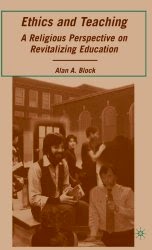It is always a homecoming!

It is always a homecoming. For a number of years now, we have been visiting family in New York City for Thanksgiving. For me, as the movies suggest (see Home for the Holidays and/or Pieces of April. There are others, but these two have particular meaning for me.) For me (how many times can I repeat that phrase?) Thanksgiving is filled with tension as the families from which I have moved gather, and seem to expect me to assume the position I years ago hoped I had abandoned. That is a bit cruel, and not wholly accurate, but some of my neuroses insist I believe it. Nevertheless, some of that description, if not true for all the family with whom we visit, is certainly true for some of them, if, indeed, for them I have a presence to assume at all!
As part of the Thanksgiving ritual for the past number of years, my nuclear family and I have attended the Thanksgiving concert presented by Arlo Guthrie and friends—for the first several years we were in attendance Pete Seeger was the co-host, but he has continued to age and he only rarely appears on stage. Last night I saw him in audience, and I was able to tell him how much his work has meant to my life. This Carnegie concert is a Thanksgiving ritual which is quite longstanding—Arlo mentions decades, and I believe him. I am fortunate to have joined the gathering for much of the last decade.

Now, sometimes Arlo appears in concert in the mid-West, and I see him in these venues whenever I can do so. And I am certain that Arlo knows many songs—indeed, I’ve heard him sing many songs, but in fact, over the years and places the shows actually seem to change only slightly, and though Arlo is a master storyteller, I’ve heard almost all of the stories. So last night I briefly wondered to myself why I continue to attend this Thanksgiving concert.
The answer is simple. I am here every year because in that auditorium at this time we, who are in attendance, are engaged in a homecoming. We all leave our Thanksgiving dinners and living rooms, we depart from the warmth and comfort of our homes, and we venture out into the New York City streets and into a world that, as Arlo says, “sucks,” to gather for a few hours with others who we are convinced are our shelter from the storm. We are sure that no one in the auditorium voted for that person from the wrong political party, and we share our anguish and despair over the state of the world in the joy of our community. I carried with me last evening into the auditorium a personal sadness, but as I approached the entrance to Carnegie Hall and saw the others approaching too, I was comforted. And when Arlo began to sing Dylan’s “Mr. Tambourine Man,” I felt, well, relieved, recognizing again that I was, among all of these strangers, home again for the holidays. Younger and older, male and female, gay and straight, richer and poorer, (albeit still too white, I think), we sat and knew the enemies were outside and not tonight in here. And for a few hours, the demons are kept away, and this land is my land again. You can, indeed, get anything you want at Alice’s Restaurant.
Arlo’s final song was one of his father’s last songs for which only the lyrics existed, and so the song stretched through the generations. Arlo gave the tune to his father’s words. The song filled the auditorium as a prayer. “My peace, is all I have that I can give to you.” I took it, and now I give it to you.












